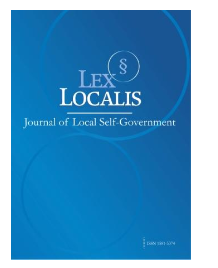THE PEDAGOGY OF LAUGHTER: APPLYING TWAIN, LEACOCK, AND NARAYAN IN CONTEMPORARY CLASSROOMS
DOI:
https://doi.org/10.52152/801859Keywords:
Pedagogy of Laughter, Comic Narratives, Comparative Literature, Twain, Leacock Narayan, Classroom Engagement, Intercultural LearningAbstract
Laughter in literature is more than a source of amusement; it is a pedagogical force that nurtures critical thinking, empathy, and engagement in the classroom. This study explores the comparative contributions of Mark Twain, Stephen Leacock, and R.K. Narayan—three writers who employ satire, parody, and irony to create narratives that are at once entertaining and instructive. Twain’s sharp critiques of American society, Leacock’s playful exaggerations of human pretensions, and Narayan’s gentle portrayals of everyday Indian life demonstrate how laughter becomes an accessible mode of reflection across cultures. Drawing from comparative literary analysis, this paper emphasizes the pedagogical applications of comic narratives: their capacity to stimulate interpretive skills, encourage intercultural understanding, and reduce classroom anxiety. By integrating these authors’ works into teaching, educators can move beyond rote learning, using playfulness and wit as tools for deeper literary appreciation and learner-centered education. The study highlights that laughter, when reframed as a serious pedagogical strategy, bridges the gap between literary enjoyment and intellectual inquiry. Ultimately, the research underscores the enduring relevance of comic storytelling, positioning it as a dynamic approach for fostering creativity, resilience, and critical awareness in contemporary educational contexts.
Downloads
Published
Issue
Section
License
Copyright (c) 2025 Lex localis - Journal of Local Self-Government

This work is licensed under a Creative Commons Attribution-NonCommercial-NoDerivatives 4.0 International License.








